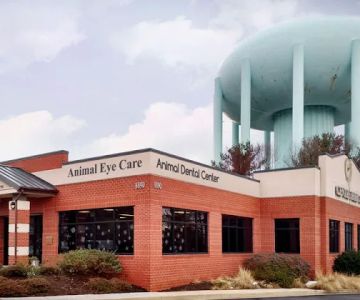1. Why Dental Health Is Crucial for Cats
As a cat owner, you might not realize just how important your cat’s dental health is. Cats are masters at hiding pain and discomfort, so dental disease often goes unnoticed until it becomes severe. Just like in humans, poor dental health can lead to a host of other health problems. Bacteria in the mouth can enter the bloodstream and impact organs like the heart, liver, and kidneys. It’s essential to understand why dental disease occurs and how you can prevent it before it becomes a serious issue.
1.1 Common Symptoms of Dental Disease in Cats
Dental disease can manifest in various ways, and recognizing these signs early on can help you take action before the condition worsens. Here are some common symptoms to watch for:
- Bad breath or foul odor coming from your cat’s mouth
- Red or swollen gums
- Excessive drooling or drool stained fur
- Difficulty eating or loss of appetite
- Visible tartar or yellow/brown deposits on the teeth
- Behavioral changes, such as irritability or hiding
2. How to Prevent Dental Disease in Cats
Preventing dental disease in cats is far easier than treating it. With regular care and attention, you can keep your cat’s teeth and gums healthy. Here's what I’ve learned over the years in preventing dental disease in my own cats:
2.1 Regular Brushing: The Gold Standard
Just like humans, the best way to keep your cat’s teeth clean is by brushing them regularly. While this may sound challenging, especially if your cat is not used to having their teeth brushed, it’s actually possible with patience and the right approach. Start by introducing your cat to the idea of teeth brushing slowly. Use a cat-specific toothbrush and toothpaste, as human toothpaste can be harmful to cats. Aim for brushing your cat’s teeth at least two to three times a week to prevent plaque and tartar buildup.
2.2 Special Dental Diets
In addition to brushing, certain types of cat food are designed to help maintain dental health. These foods are formulated with textures that help scrub the teeth clean as your cat chews. Some of these dental diets even contain ingredients that help reduce plaque and tartar formation. Consult with your vet to find the best dental diet for your cat’s needs.
2.3 Dental Chews and Treats
Another great way to keep your cat’s teeth clean is by offering dental chews or treats. These treats are designed to help remove plaque while your cat chews. While these treats should not replace regular brushing, they can be a great supplemental tool for maintaining good oral health.
2.4 Regular Veterinary Checkups
One of the most effective ways to prevent dental disease in cats is through regular checkups with your veterinarian. Your vet will examine your cat’s mouth and teeth during routine visits and can catch any early signs of dental disease before they become problematic. If necessary, your vet may recommend professional dental cleanings to remove built-up tartar and plaque.
3. The Importance of Early Intervention
When I first adopted my cat, I didn’t realize how critical it was to prevent dental disease early on. Unfortunately, my cat developed gingivitis, which led to a costly and painful dental cleaning. I learned the hard way that preventing dental issues early is much more affordable and less traumatic for your pet than waiting until the disease has progressed.
3.1 The Cost of Neglecting Dental Health
If left untreated, dental disease can lead to much more than bad breath. It can cause painful gum infections, tooth loss, and systemic health problems like kidney disease. Treating advanced dental issues can also be expensive. A professional cleaning at the vet can range from $300 to $1,000, depending on the severity of the condition. By preventing dental disease with simple home care and regular vet visits, you can save money and protect your cat’s health.
4. Fun Fact: Cats and Their Teeth
Did you know that cats have a total of 30 teeth in their mouths? These teeth are essential for tearing and grinding their food, but they can also be prone to issues like plaque buildup and gum disease. Just like humans, cats are susceptible to dental issues as they age, so it’s vital to maintain their oral health throughout their lives.
4.1 The Role of Genetics in Dental Health
Some cats are more prone to dental issues than others, thanks to genetics. Cats with certain breeds, such as Persians and Siamese, are more likely to develop dental problems early on. If you have a cat from one of these breeds, it’s even more important to stay on top of their dental care to prevent issues before they arise.
5. Conclusion: Keep Your Cat’s Smile Healthy
Dental disease in cats is preventable with the right care and attention. By brushing your cat’s teeth regularly, feeding them a special dental diet, offering dental chews, and scheduling regular vet visits, you can ensure that your cat’s teeth stay healthy for years to come. Don’t wait for dental disease to develop—take proactive steps to keep your cat’s smile bright and their overall health in check.











